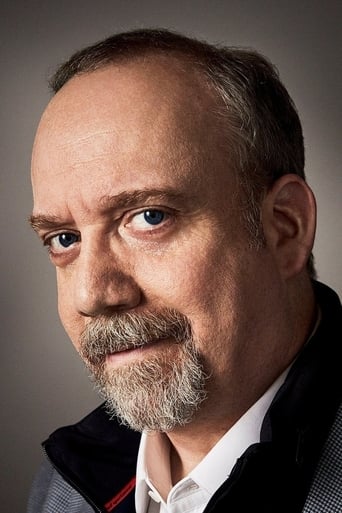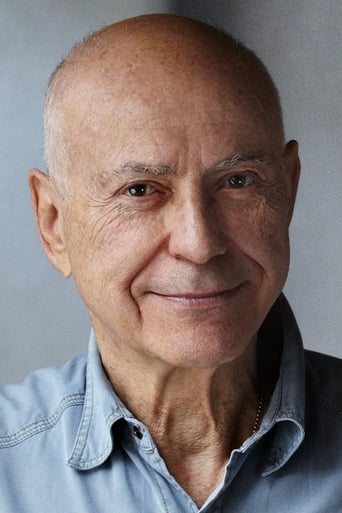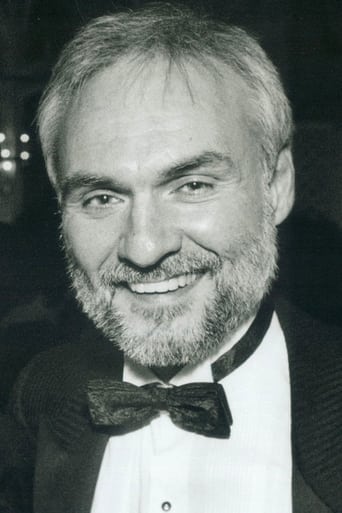Josephina
Great story, amazing characters, superb action, enthralling cinematography. Yes, this is something I am glad I spent money on.
tiailds
Saw a article online about it and gave it a shot."Was it interesting?" It definitely tells the events well, though the lead-up is far too long.2 out of 3."Was it memorable?" The acting was good for a TV movie. Spader did well, but would have casted someone closer in looks and temperament.1.5 out of 3."Was it entertaining?" The back-story was so long, I wondered where the movie was going to end. The "antagonists" are somewhat comical.1.5 out of 3.Starting with 1 (or else military intelligence will come looking), 1 + 2 + 1.5 + 1.5 = 6 While flawed and slightly cheap, this movie was done well.
Robert J. Maxwell
No one can watch this film without comparing it to "All the President's Men." Allowing for the difference in production values -- this being a television movie -- it still comes in second in all the important respects: direction, writing, photography, and performances.I hate saying that because the story is an extremely important one and it resonates today, what with WikiLeaks and Julian Assange. But the film doesn't really DEAL with those important issues. It's a schematic story of a man with an elite background who started out as a hawk on the Vietnam war, became disillusioned and guilty, turned into a dove, was jailed, and subsequently freed. It's not the story of the war at all, nor of freedom of the press or national security. It's the story of one man's anguish (James Spader) and his courtship of a foxy woman (Claire Forlani) -- and not particularly well told, at that.Some might disagree with that judgment and I wouldn't argue, but compare the opening scenes of "The Pentagon Papers" with the similar opening of "All the President's Men." Both show us a break in.There is no music behind the credits in "President's Men." Instead a lone guard finds an anomaly on a door lock and calls in the police. We see people with flashlights creeping through the Watergate complex in Washington. The only sound is that of an occasional cracked voice over the hand-held radio. The speech is slow and deliberate. "There are people coming -- armed people." Suspense hangs heavy in the air. The plain-clothed police finally corner the trespassers. At gunpoint, they hold up their hands and seem frightened, like mice in a state of tonic immobility. Throughout, the camera hardly moves and each shot last as long as it takes to get the point across.Contrast this with the opening scenes of "The Pentagon Papers". There are hurried footsteps on the wet pavement. A door crashes inward. Men sweep into a dark psychiatrist's office. They smash glasses, push furniture aside brutally. Flashlight beams wave frenziedly. The music booms in the background. The camera wobbles as if drunk. Each shot last a fraction of a second. There isn't time for the viewer to feel any tension. There is no building suspense. We're all overwhelmed by the action on the screen.James Spader is Daniel Ellsberg, the ex Marine, now a researcher at MIT, who steals a Top Secret report in 47 volumes and leaks it to the New York Times when he can't get a politician to publicize it. He's redacted any information that might compromise American lives in Vietname -- troop dispositions and the like -- but has exposed the substance behind the projected perception. Four presidents lied their pants off about Vietnam. But the script has Spader protest too much. He goes around giving speeches, sometimes shouting them.Claire Forlani, with her beauty, dihedral eyes, and sneaky sensuality is a very nice partner for a whistle blower to have. Very comforting and supportive, unlike his wife who complained that he was married to his job. But, then, what is a love affair doing in a movie about the Pentagon papers? Why must we be subjected to the formulaic TV scene of the two lovers snuggling in bed behind the mosquito netting in a rosy romantic light while a thousand one throbbing violins tell us that this is a love scene? We GET it -- even if we don't WANT it.But even if Spader were up to the task -- and for all we know he might be -- and even if Forlani had more to contribute to the story than a pair of appealingly crossed eyes -- the film would suffer heavy damage from the direction and the writing.The camera plays tricks. It wobbles. It changes contrast. It switches from black and white to color. During action scenes or scenes in which someone must face the press corps, it seems to be held in the hands of a spastic person.And who could conquer lines like these? Forlani to Spader, chewing him out: "You're encouraging them to turn more of our boys into cannon fodder." Spader to Forlani: "Oh, so I should just roll over and play dead like Chamberlain at Munich?" (If that's the best Ellsworth could do in a discussion of Vietnam, they should have paid me his salary. I'd have done a better job.) Boys and girls, that reference (Chamberlain, Munich) is to a peace-making attempt on the part of the British Prime Minister just before World War II. Neville Chamberlain agreed to a pact with Hitler and made the mistake of his life when he came home, waved a piece of paper in the air in front of the newsreel cameras, and proclaimed "peace in our time." It was the worst thing he could do. Ever since then, whenever a country has initiated any sort of armed conflict, the cry has been that we will never again "appease the aggressor." I will personally guarantee you, kids, that the next war we get into will be accompanied by rallying cries involving Chamberlain and his scrap of paper. I'd be willing to bet but I have no money.It's disappointing, see, because there really ARE important issues at stake, and the same problems plague us today, yet the movie avoids addressing them except in the most oblique way. Instead, we're supposed to feel happy for Ellsberg's having found the love of his life. Well, at least he did get that. Towards the end, facing the possibility of life in prison, he mutters, "My children will be cursed." He needn't have worried. In all the confusion since then, the name of Ellsberg has been lost to all but historians.
jonathan-485
I agree completely with jmuckian (above). I've just finished reading "Secrets", the memoir that this movie is based on. Did they do an okay job for a TV movie? Yes. Does it *begin* to convey the flavour of the book, and the creeping disenchantment that Ellsberg experiences over the course of his years spent at the Pentagon, in the Marines, and at Rand? No, and that's what makes the book an absolutely riveting page-turner. I think the most glaring error in the movie is the reduction of his time in-country to a gunfight or two and the surveying of a decimated village in the middle of a monsoon. In reality, his time on the ground and insistence on really seeing what was going on in villages that others only saw from the air made for the best parts of the story. So in balance, I think that if you were willing to sit through this movie, and find the story at all compelling, you really owe it to yourself to read the book.
ielle
The television had been plaguing me with advertisements for The Pentagon Papers, and my interest in the government and conspiracies and the CIA et cetera had already been piqued, so I decided to watch it.Unfortunately, I wasn't at home when it came on, so I taped it, and when I finally got around to watching it, I was hooked.Excellent movie for anyone who enjoys movies about the government and conspiracies and especially Vietnam.




